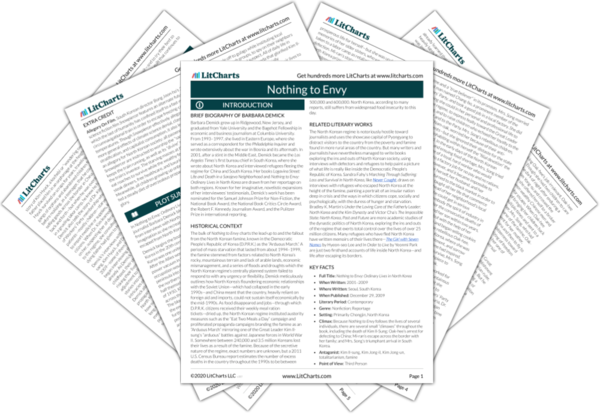By charting Jun-sang’s journey to South Korea, Demick illustrates how much he was risking in defecting. He enjoyed an elevated social position and the potential for even more success in North Korea, had he stayed the course—but ultimately, Jun-sang could not ignore the truth about the regime. He risked everything—including his very life—for passage to South Korea, believing that he would have a far better life there.
